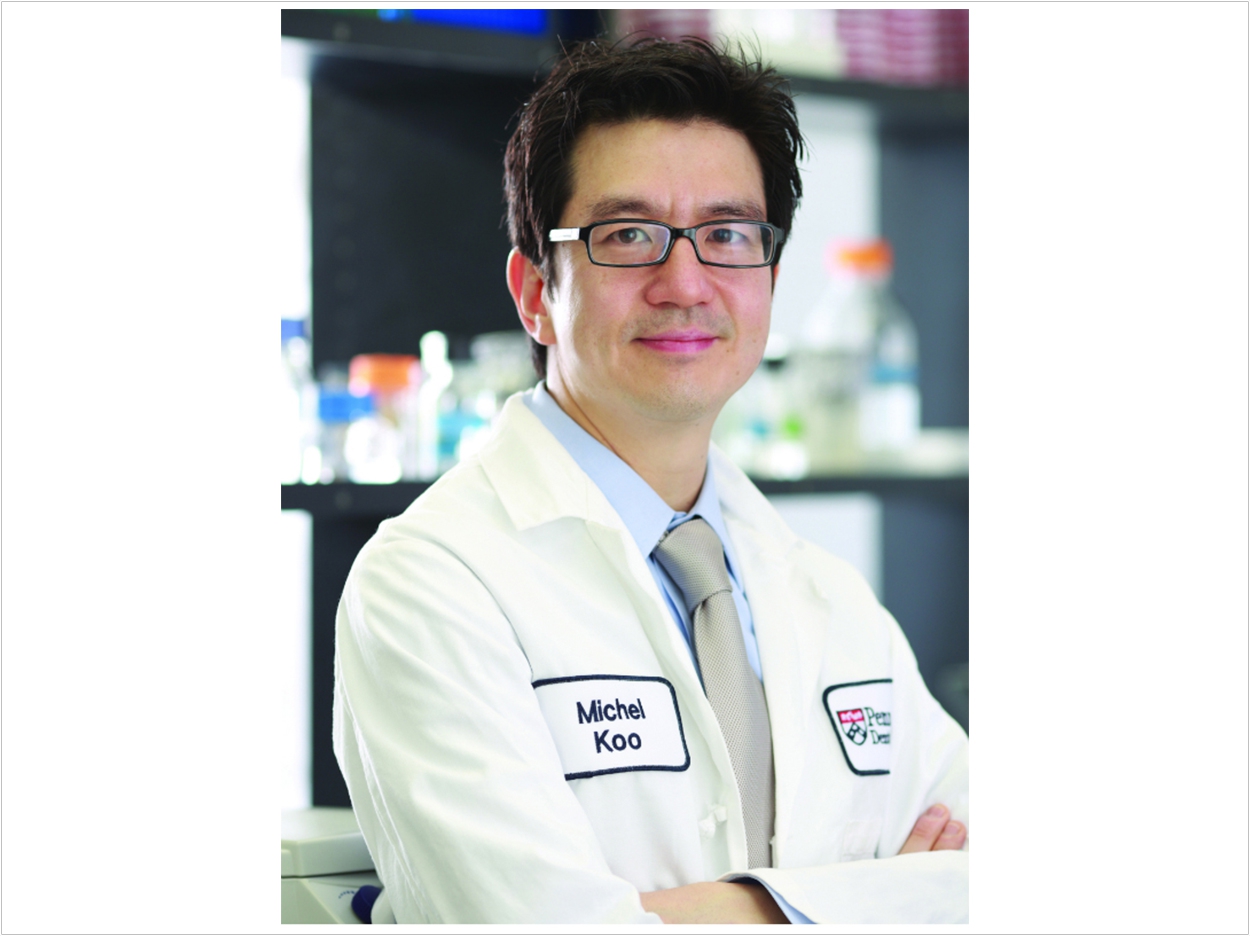
The Penn Center for Innovation (PCI) has named Dr. Hyun (Michel) Koo, a professor of orthodontics and pediatrics/community oral health at Penn Dental Medicine, its Emerging Inventor of the Year for his work in developing novel approaches to eradicating biofilms.
Koo’s work in biofilms lead to a United States patent awarded early this year, with additional patent applications pending in collaboration with Penn Medicine and Penn Engineering based on this first patent family.
“When Michel came to Penn in 2013, he brought a robust research program directed at understanding, controlling, and eradicating biofilm, particularly the biofilm which occurs in our mouths and leads to cavities,” said PCI director of licensing Melissa Kelly.
“Since his arrival, he has built an extensive portfolio of technologies, the first of which has led to the issued patent that is the subject of this award. The first, I expect, of many more to come,” Kelly said.
Koo’s patented work, in collaboration with Penn Medicine’s Dr. David Cormode, involved the development of a novel nanoparticle technology to effectively control highly virulent dental biofilms, or plaque, that can cause severe childhood tooth decay. One in three children suffers from severe tooth decay globally, Penn Dental said, particularly affecting impoverished families.
“What is exciting about this nanoparticle technology is that it is both highly precise and low-cost,” said Koo.
The iron oxide nanoparticles can precisely target pathogenic dental biofilms that cause severe cavities without affecting the healthy microbiome. They also are simple to make and cost pennies to produce, Koo said, making the treatment affordable and sustainable as these nanoparticles could be delivered via a mouth rinse.
Working in collaboration with Penn Engineering’s Dr. Kathleen J. Stebe, Dr. Edward Steager, and Dr. Vijay Kumar as well as with Penn Health Tech, Koo also is developing portable biofilm cleaning devices using the same nanotechnology for disinfection and biofilm removal from dental and medical implants.
“It just shows how collaborations with Medicine and Engineering, together with Penn’s PCI support, can lead to completely new ways to address a persisting clinical problem that sometimes cannot be solved in conventional ways,” said Koo.
“In particular, Melissa has been exceptionally helpful connecting with the right people and mediating partnerships to move this technology forward,” Koo said.
Koo also has spearheaded a collaborative initiative with the School of Engineering to create the Center for Innovation & Precision Dentistry (CiPD), set to launch in January 2021. He will be the co-director of the new center with Stebe.
“Michel exemplifies the spirit of collaboration at Penn by actively collaborating with talented individuals from across various disciplines,” said John Swartley, PCI’s managing director.
“As a result, we thought he was an ideal recipient of the Emerging Inventor of the Year award, and we look forward to seeing Michel revolutionize the field of oral healthcare,” said Swartley.
“This award was only possible because of the amazing support of the Penn Dental Medicine leadership and the openness of Penn schools across the campus for collaboration and innovation, all of which is further galvanized by PCI and its leaders,” said Koo. “The power of Penn has never been clearer.”
Related Articles
S Mutans Hides Under Other Bacteria to Stick on Teeth and Form Plaque
Penn Researchers Take IADR Awards
Biofilm Formation Resembles Urban Growth


